
Let me tell you why I love this farm.
In the spring, you have these boys, all under 10, one being severely autistic, and they’ve been locked up for weeks in Amsterdam and you stuff them and the dog into the old Audi and somehow that slows them, but just barely, until two hours later you’re at a turn-of-the-century farm that your in-laws inherited, but never use, and the minute the doors open these same boys are bursting and screaming through the barns and the apple orchard and you’re flipping light switches installed from when there was first electricity. You don’t care where your kids are because there’re only farm fields for as far as the eye can see and the water in the canal circling the farm is only knee-high and your dog’s barking exactly what everyone’s feeling. Exhaling, you and your wife fall onto the bed and kiss and the tree-leaves pattern polka-dots onto skin and you think, Dammit, this is what life should be about.
And in the winter, when the North Sea storms corner this pocket of Holland, bending the icicles upwind, the kids play hide-and-seek in the barns, so many hiding places, nooks and crannies, dusty, but warm.
From the attic windows they can see the North Sea wind-farms, dozens of white mastiffs chasing their tails. I once asked the local government about installing our own simple wind turbine to power our farm, but was told no, that it would ruin the “aesthetic flavor” of the landscape. There is a particular meretriciousness to Dutch sustainability.
Now, three years later, our turn-of-the-century farm is bulging, bending, sinking. My boys’ wooden playhouse, their private lookout six-feet high, anchored into the ground by huge blocks of cement, suddenly tipped 30 degrees, bending in adoration toward the rising sun. Soon, the farm will be gone — collapsed, in earthquakes linked to gas extraction. I could blame corporations or negligent consumer behavior or greedy politicians. I probably should blame myself, an American, of a generation taught that there are no trade-offs, only possibilities, raised to believe in limitlessness, to expect utopia. But I’m choosing to blame Russian President Vladimir Putin.

Putin’s a man’s man. Sure, he waxes his chest, but that’s because he hunts, tracks tigers, rides motorcycles in Siberia, all shirtless. The New York Times suggested that the president of Chechnya, Ramzan Kadyrov, deposited political critic Boris Nemtsov’s corpse in front of the Kremlin for Putin, a cat leaving its master a mouse.
Dutch men wear pink cardigans over flower shirts. They hit on your wife and if you tell them to back off, they wave their hands in the air and call you aggressive. The Dutch also have the human rights tribunal in The Hague. Ideologically impressive. Imbalanced convictions. No Dick Cheney, but plenty of Eastern European sociopaths and African warlords. No one’s left a corpse in front of The Hague in humble deference.
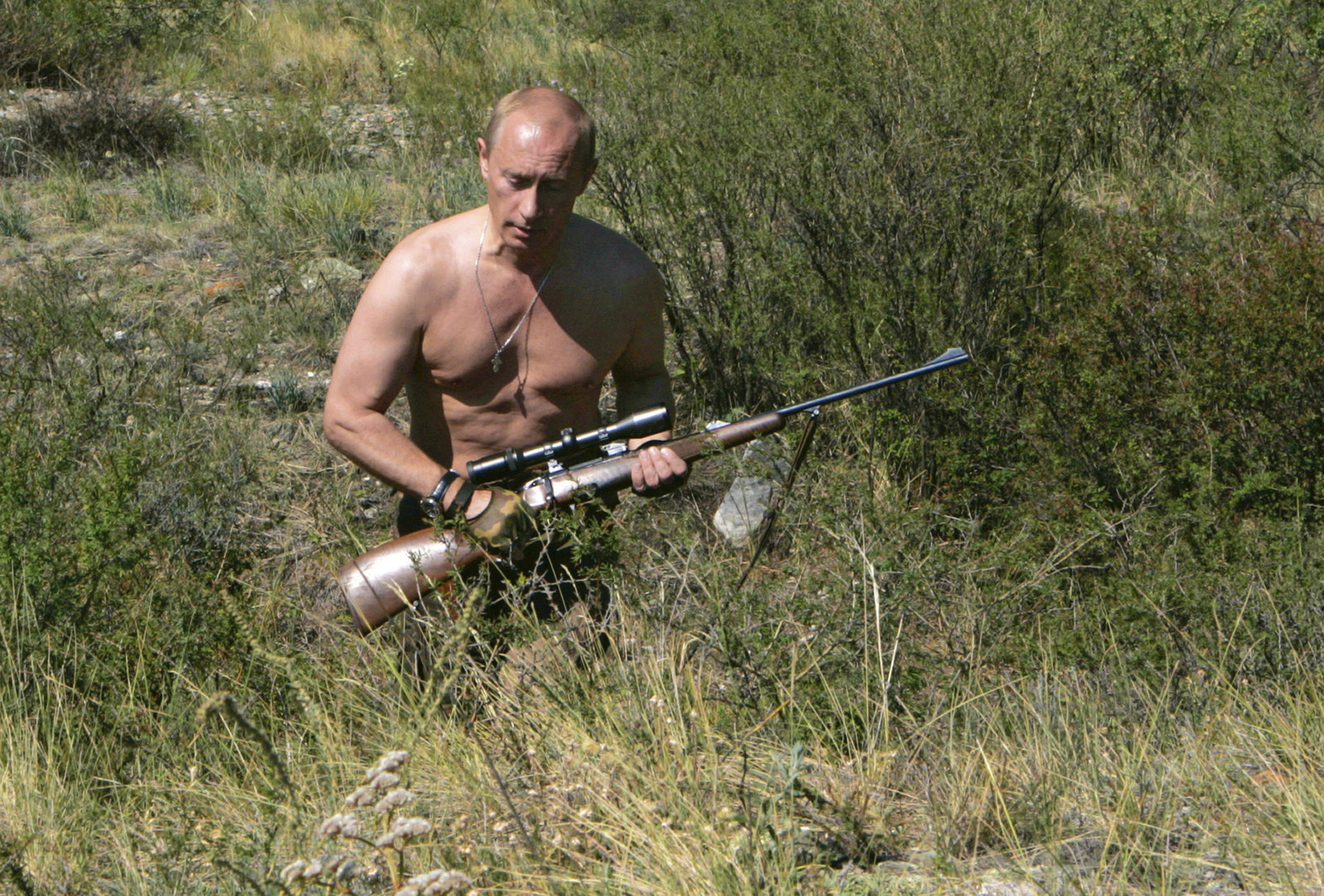
My adopted homeland’s fight with Putin started in the fall of 2013 when a Dutch-flagged Greenpeace ship and its 30 crew members were arrested by the Russians and charged with piracy. The Dutch initiated legal action, there was a media storm, and, with a wink and a middle finger, Putin graciously “pardoned” them.
Next, there was the drunk Russian diplomat in The Hague, who could barely stand, publicly abusing his wife and children in front of his Dutch neighbors. Putin demanded an apology for said diplomat’s obvious arrest. Apology given!
A week later, a Dutch diplomat was beaten in Moscow. The elderly man’s assailants drew a lipstick heart on a mirror with the letters “LGBT.” The Dutch demanded an apology; Putin smirked. With winter only a month it would be just awful if I had to shut off the gas tap, wouldn’t it my pretties. The Dutch backed off. They even balked at Obama’s suggestion at Russian sanctions.
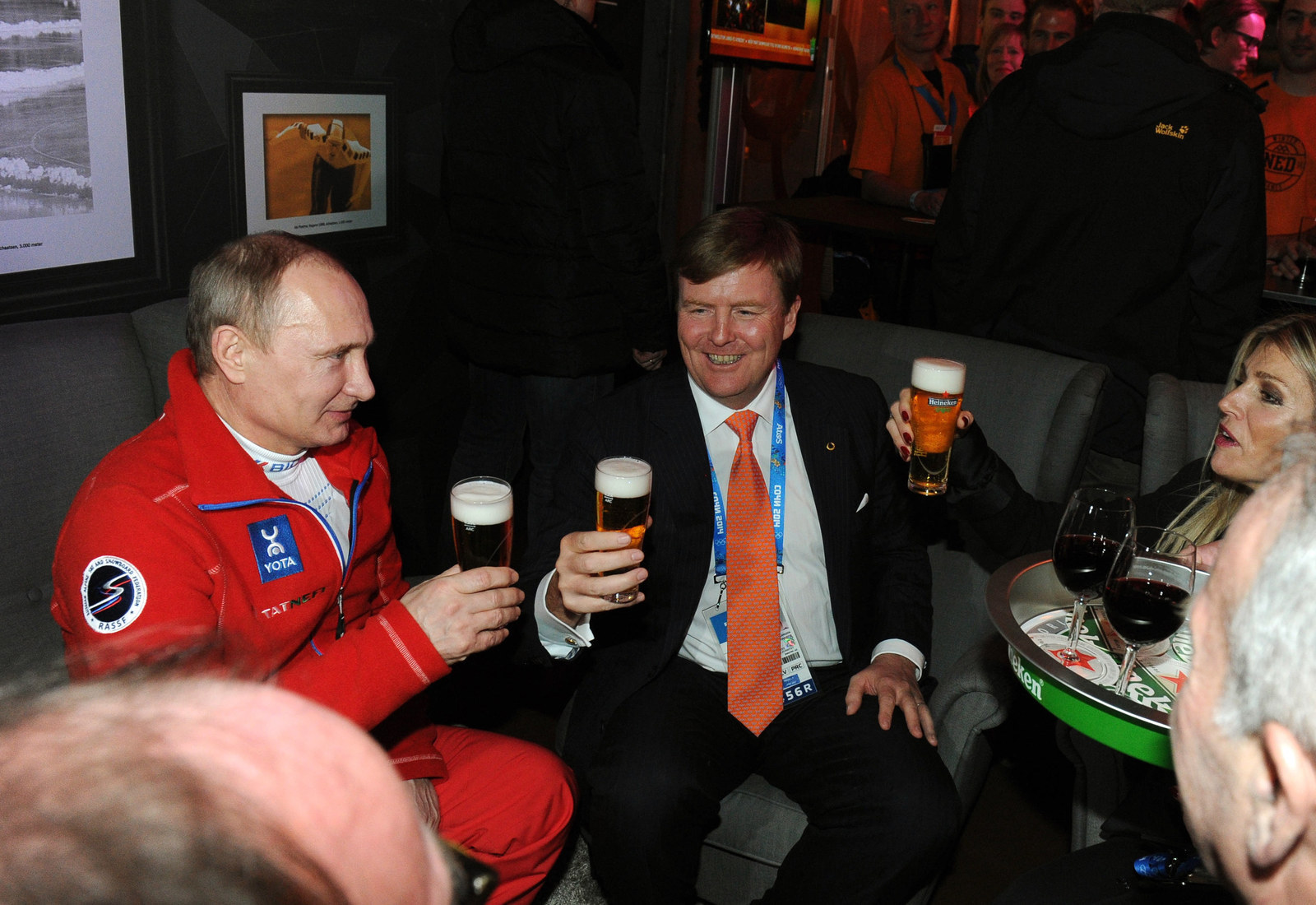
At the Olympics in Sochi, the king and queen of the Netherlands were photographed with Putin, drinking a Heineken, and the Dutch went ballistic.
Then Crimea was bagged. In Europe’s backyard! Fingers were wagged. Russia was kicked out of the G8.
Next, Malaysian Airline Flight 17 exploded mid-air over the Ukraine, with 194 Dutch people on board. When asked about Putin, the conditioned stimulus from Europe’s political elite was forehead sweat.
Even good politicians are limited by nature, so global impositions often leave them calling for “investigations.” Which is exactly where we are today with the biggest tragedy to happen in the Netherlands in decades. We have the repeat offender, the smoking anti-aircraft gun, two hundred bodies riddled with Russian anti-aircraft buckshot, and a convoluted series of “investigations.”

The Netherlands is crowded. It has a similar population density to Bangladesh and Taiwan. Freestanding houses are rare. A whole, empty farm with nothing but fields around it is a treasure. I have my own writing room that looks out as far as the eye can see. In the fall, my kids and I pick apples and pears from the orchard and make pies and cider. The trees are bent from the wind. Rare birds flock here. Deer graze on the grass. Our dog has taken up a new hobby of digging, almost existentially, for moles.
Dutch Shell and Exxon own our little piece of heaven as well.
And there’s history here as well. The farmers who rent the land around our farm have ties with my wife’s family going back generations. Jews were supposedly hidden here during the second World War. You can still see the shiny streaks in the grass where my friend and I made our first baby oil Slip 'N Slide and lay bets to see whose half-naked child could be bowled the farthest.
Dutch Shell and Exxon own our little piece of heaven as well. At least the ground underneath. The Loppersum gas field where our farm sits is comprised of sand and loose sediment, remnants left from before the North Sea was walled out.
In America, capitalism is often conjoined with Freedom. Socialist European capitalists don the hat of Nationalism. In 1947, Dutch Shell and Esso (now Exxon) formed a nationalized company, the Nederlandse Aardolie Maatschappij, or the NAM, and started pumping about 70 billion cubic meters of gas a year, according to Bloomberg, which is more than the entire country of Italy needs or uses.
And with close to 11 billion euros a year in revenue, the NAM became addicted to denial. While Putin was holding the Greenpeace boat hostage, a spokesperson for the NAM was demanding that The New York Times print a retraction stating that the earthquakes came from “natural faults,” not the pumping of gas. Every earthquake brought forward a denial from a NAM spokesperson. In the winter of 2013, the Minister of Economics, Henk Kamp, went on Holland’s biggest talk show and said that because the research showed that the earthquakes were worse than they thought, they would need to do — you guessed it — more “investigations.”
But the numbers were already there. In the last two years, there were over two hundred earthquakes in the province of Groningen, some almost reaching 3.0 on the Richter scale. This in a country that never recorded an earthquake before 1986. According to the Dutch government website, there were a thousand reported earthquakes near and around our farm since 1986. A fifth of them occurred in the last 24 months. After years of denial, the NAM admitted to causing the earthquakes at the end of this winter and, a few weeks ago, publicly apologized.

A year and a half ago, cracks at our farm were suddenly everywhere. Inside and out. The shed where we keep the bikes and kiddie pool was sliding into the canal. The barn was tipping. The chimney was crumbling brick by brick.
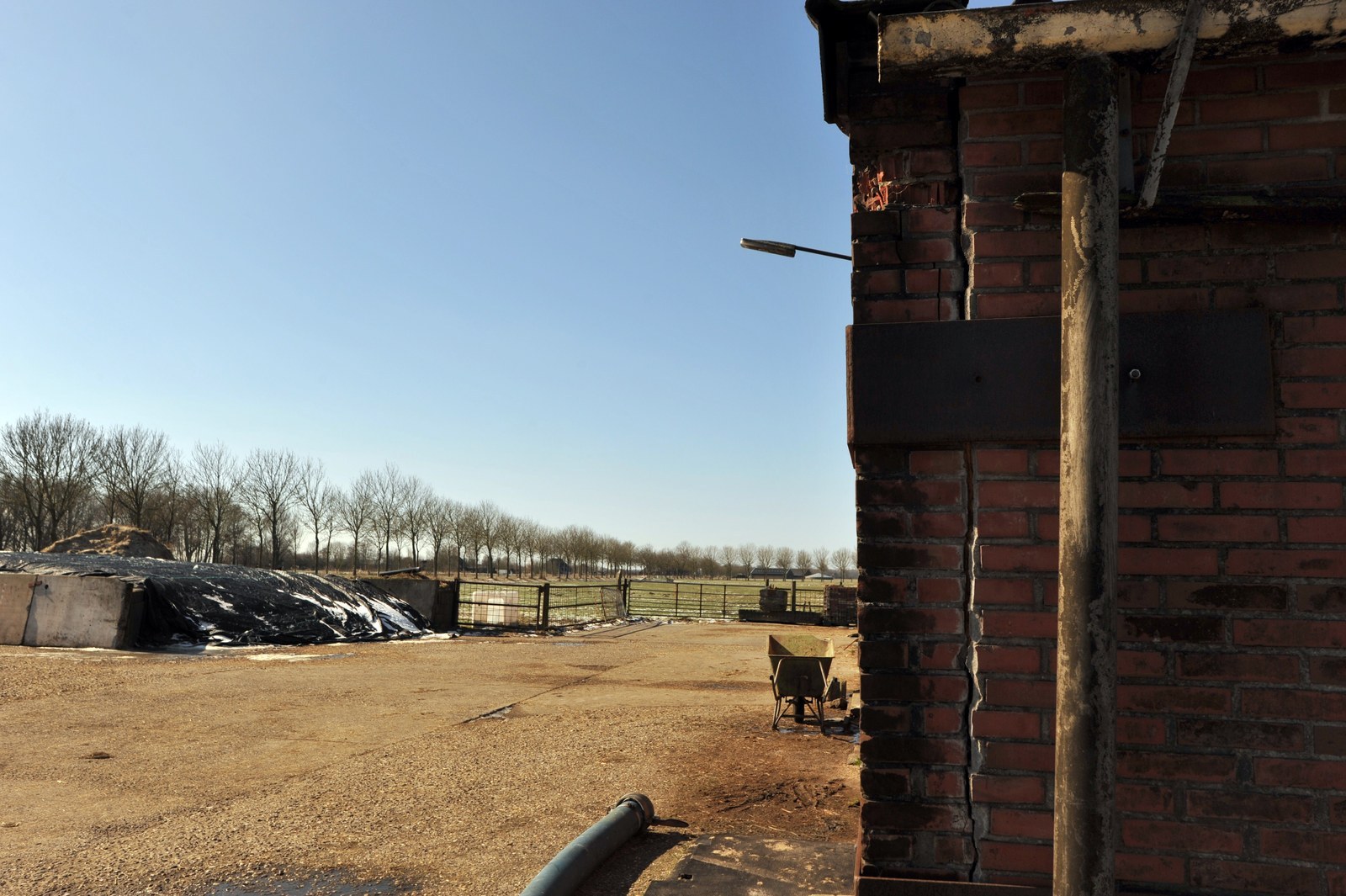
My father-in-law was having heart palpitations. We had family meetings. We couldn’t sell, because no one’s going to buy an old farm on an earthquake epicenter. My father-in-law wants to sue the NAM, then, with the money, tear the whole farm down, build a new one. But, this being Europe, navigating regulation is an occupation in itself. We have to first prove that the farm isn’t of historical significance and then we have to invent a new kind of earthquake-proof foundation that can literally swim on the loose North Sea sediment.
A dinner was organized with the neighboring farmers. These northern Dutch, Groningers, are like the cast of Fargo. Kind, but passionately expressionless. Words originate from the throat. They were skeptical of the restaurant, skeptical of the ties their wives made them wear, skeptical of anyone who speaks more than one sentence an hour.
Dutch gas meant more intense earthquakes. Russian gas meant supporting Putin.
My wife and I asked one of the farmers if we could buy several of his old worm-eaten sugar-beet crates to make a bookshelf for our Amsterdam apartment. He stared at us for a long time, one eyebrow raised. As a former New Yorker, I was impressed by the efficiency of his silent condescension.
They all told stories of walls crumbling, doorways snapping, pipes bursting. Most of their turn-of-the-century farms have aging, brittle asbestos-ridden roofs as well. With every earthquake, carcinogenic fibers flutter.
The only official appraisers and engineers assessing the damage are hired by the NAM. And these officials had been stopping by, the farmers said, surveying, measuring, looking over their buildings. At first they said nothing, but as the earthquakes grew, they offered flimsy, portable aluminum scaffolding to prop up massive sagging roofs. Blaming the moles — and reminiscent of Caddy Shack — they offered to send someone in to stop the tunneling.

Like a good monster-rock ballad, the rumbling began tenderly. But two years and two hundred tremors later, the earthquakes were tipping 3.0 on the Richter Scale. By 2015, the farmers weren’t the only ones suffering. Towns, villages, schools, hospitals, ancient windmills — all crumbling. 212,500 houses were severely damaged. An impact analysis by major engineering firm Van Rossum concluded that 90,000 homes were considered uninhabitable, 150,000 needed considerable reinforcement. Estimates ran in the billions of euros.
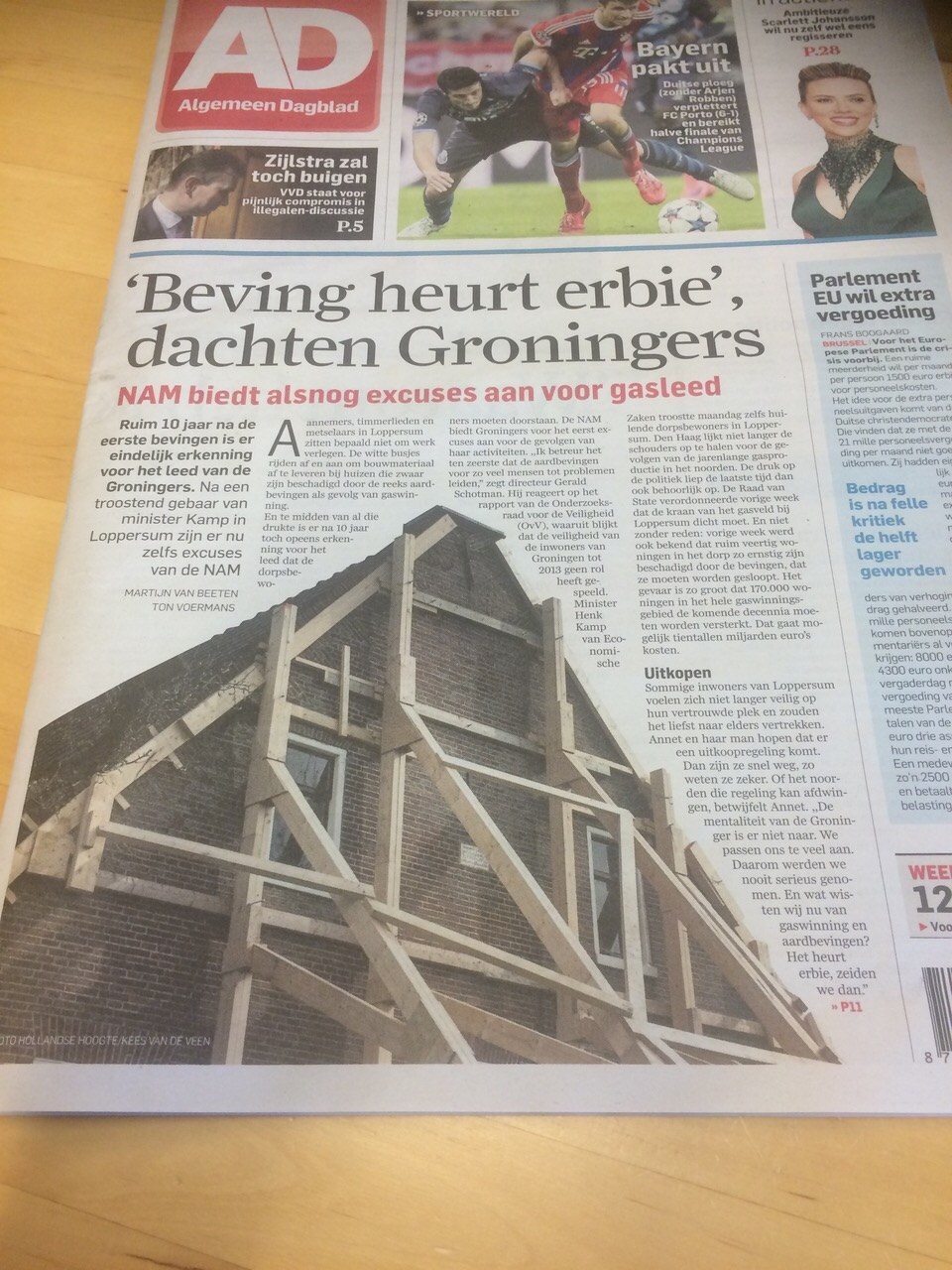
The story snowballed. The opinion pages were suddenly filled with sympathy for the north. The Dutch version of The Onion, De Speld, did an article about Chilean and Pakistanis giving rice to poor Dutch earthquake victims. The political party for animals, Partij voor Dieren, demanded the NAM rebuild every barn. Our farm, now propped up by massive wooden supports, made the cover of the daily newspaper, Algemeen Dagblad.
Every day it seemed a politician downplayed the earthquakes, and every denial was followed by leaked confidential analysis proving otherwise. The politicians’ dilemma became apparent. Dutch gas meant more intense earthquakes. Russian gas meant supporting Putin.
Shell and Exxon have an impressive track record at predicting the future behavior of dictators. The year Putin picked his first public fight with The Netherlands by holding the Greenpeace ship hostage, the gas extraction under our farm was immediately and significantly notched up, sucking out more gas than anytime in the previous 40 years.
Windmills are a national symbol not only because they’re pretty. They were once used to drain the water from the low-lying fields, making wetlands arable. One windmill could dry out dozens of interlocking fields as long as the canals were also interlocked. If the community decided to do something that one particular farmer didn’t like, he could close off his canal in protest. Soon, everyone around him would be underwater. Conscious of the spiteful farmer, Dutch politics are not about majority rules, but born from consensus. But when your spiteful farmer is an irrational dictator, consensus is futile.
We love the idea of sustainability more than we like the hard choices required to make it work.
It would be almost impossible to make a Dutch version of House of Cards, because here political intrigue and party rivalry mostly play out in thousand-page reports and long, closed-door “conversations.” When revenge has a strong public appeal, a few politicians dare to flutter in the television light. Gay marriage has been legal here for almost a decade and a half. When Putin passed the now-infamous anti-homosexuality laws, our Dutch foreign minister, Frans Timmermans, a man known for callously turning boatloads full of African refugees away, offered political asylum to any oppressed gay Russian.
But that’s the extent of their idealism. According to a recent article in the NRC Handelsblad, one of The Netherlands’ largest newspapers, state-owned Dutch gas consortium Gasunie has a 9% stake in the Russian pipeline connecting northern Europe to Siberia. Their goal is to make the Netherlands a “gasrotunde,” or pipeline intersection, taxing the flow of Russian gas to the rest of Europe.
Even in the Netherlands, sustainable energy has a long way to go. And, along with multiculturalism, we love the idea of sustainability more than we like the hard choices required to make it work. The Dutch protest Putin’s anti-homosexual laws and his restrictions on freedom of speech. But will they accept more gas extraction, earthquakes, and industrial windmills as part of this fight? I think Putin’s betting they won’t.
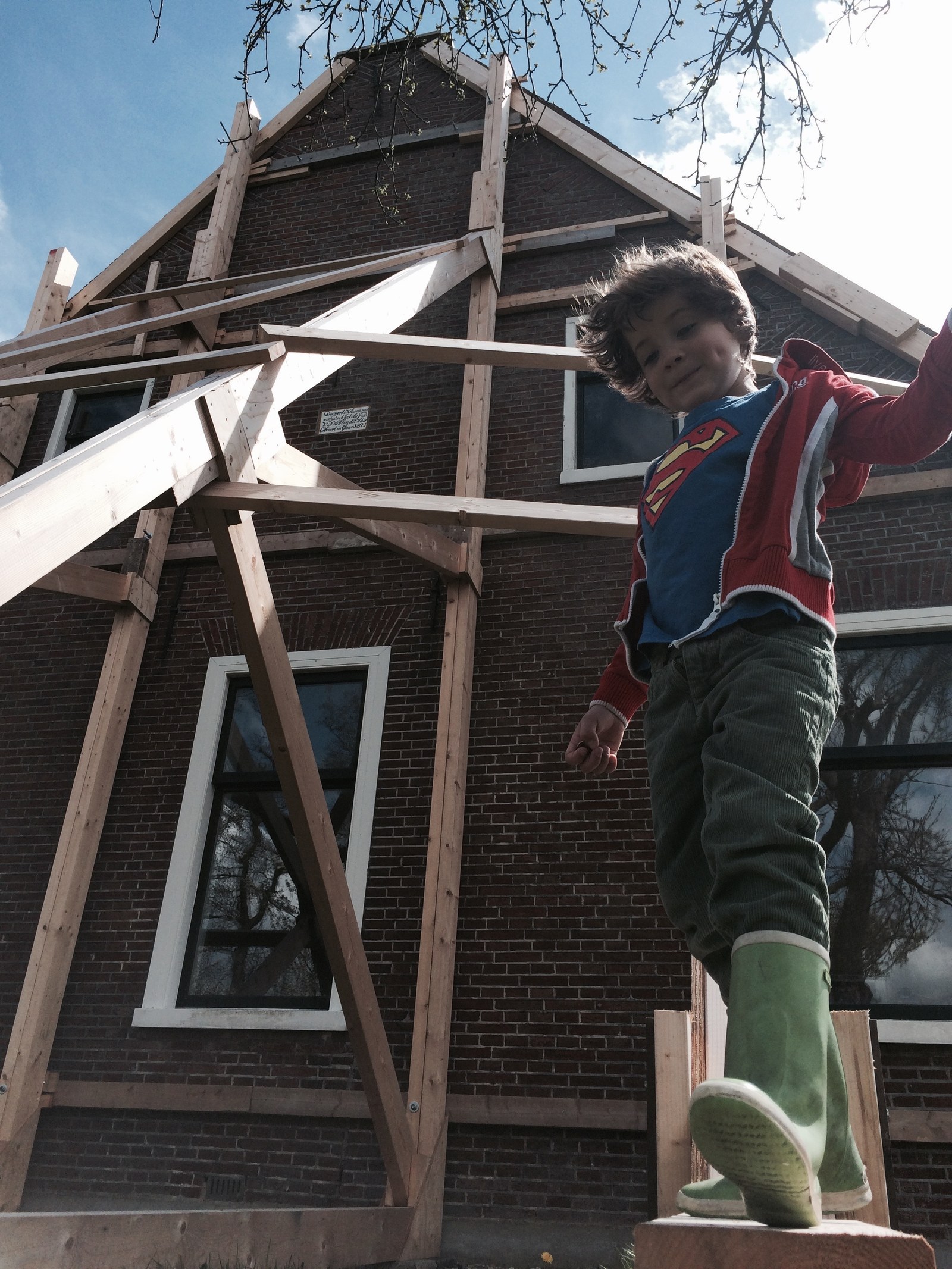
Europe gets a third of its gas from Russia. And the sanctions against Russia show just how far Dutch and European idealism goes; military, oil industry technology, banks have all been targeted. Gas, however, has been left untouched.
Gas extraction from the Loppersum field, below our farm, has been cut to a minimum, but that minimum is still a staggering amount. The earthquakes will continue, but hopefully won’t increase in intensity. The enormous wooden supports propping up our farm now look like something from the construction of Noah’s Ark. Recently, my father-in-law came close to reaching a settlement with the NAM to pay for a new farm, but it would have to be built from new, cheaper materials. The allure of the old farm — ancient wooden beams crisscrossing like meaty spiderwebs, the owl perch where those same beams were fit together by hand, the old horses stalls where my boys hunt mice or ride their bicycles when sleet peppers the land — will all be gone.
I should say my biggest concern is that the lawyers and advisers to the NAM have made careers out of exploiting countries and therefore it’s hard to believe they’ll give us a good deal. But the truth is my entitled mind is preoccupied by the injustice of going through this at all.
Meanwhile, Putin’s on his motorcycle somewhere, driving across his vast empire, shirt open, chest waxed, breeze blowing over smooth skin. There’s not a twitch of fear on that man’s face. Just last week, the Inlichtingendienst — the Dutch version of the CIA and FBI — said in their yearly report that the biggest threat to the Netherlands wasn’t neo-fascists or ISIS, but, yes, Putin.
